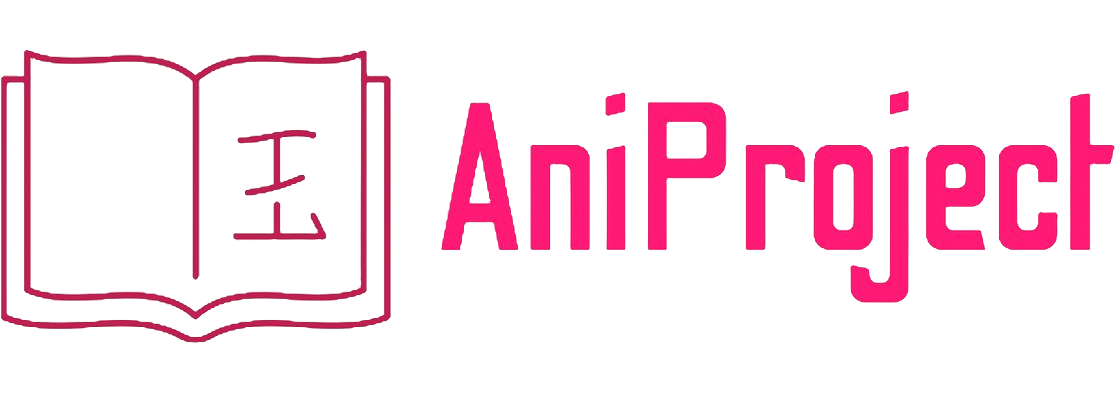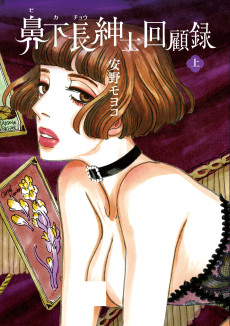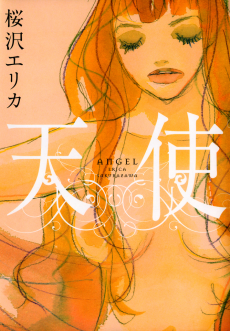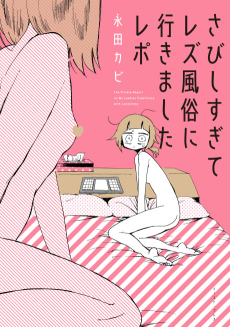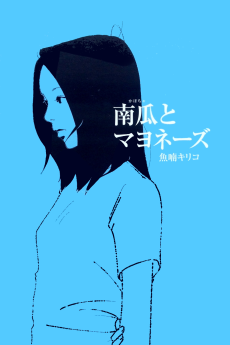PINK
STATUS
COMPLETE
VOLUMES
1
RELEASE
September 28, 1989
CHAPTERS
20
DESCRIPTION
Pink is a manga about a Japanese girl named Yumi, a beautiful girl in her early 20s. During the day, Yumi works as a regular office lady, but by night, she works as a prostitute. Yumi needs her two jobs to make ends meet. She also needs the extra income to feed her unusual pet, a crocodile, which she keeps in her apartment. Working in an office is quite normal for young Japanese women, but keeping a pet crocodile, and being a prostitute makes Yumi stand out. In truth, few girls are like Yumi, however, many readers can empathize with her. Young women love their "something," symbolized by her pet crocodile, and they can also identify with Yumi's "wild at heart" nature.
CAST
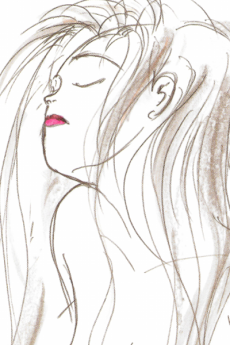
Yumi
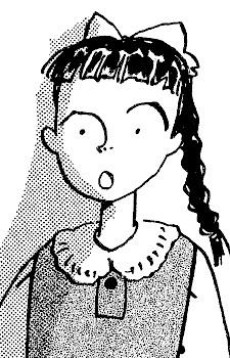
Keiko
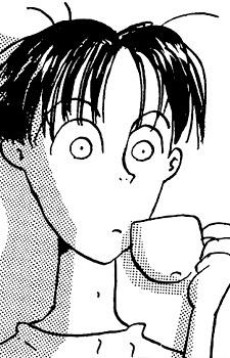
Haruo Yoshino
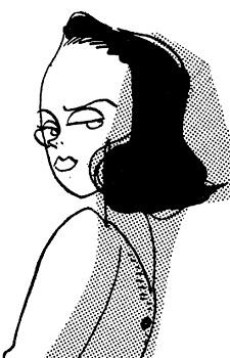
Yumi no Mamahaha
CHAPTERS
REVIEWS

SEGURIDA
95/100Allow Pink to give you a piece of advice: "Don't let the rough waves of society swallow you."Continue on AniList_This review contains spoilers._
Yumi’s, office lady by day and callgirl by night, life is a whirlwind. She is a determined but unconcerned young woman who, unlike her coworkers, is determined to fulfill each and every one of her whims. Pink documents a fraction of this young woman’s days, sharing with readers her feelings, wishes and reasonings as she treads through life.

source: sparks edition
ALL THAT'S RIGHT WITH PINK
Kyoko Okazaki is able to communicate her generation’s concerns in a seemingly unconcerned manner, which emphasizes these incomformities themselves: a feeling of void dug into one’s soul by media overexposure and savage consumerism. Pink is about its lead, Yumi, as much as it is about Okazaki and her peers, back in the 80s. But this does not mean her message has gone dated by any means, as the strong statement that Okazaki directs to anyone and everyone continues to have utmost relevance amongst young (and not so much) people today.Personally, I enjoy books that revolve around a single character quite a bit, and Pink is definitely the perfect representative of this. Yumiko is such an iconic character; she perfectly embodies the whole sentiment behind the story and is just so endearing to read about. I find it lovely, Yumi’s way of being uninterested in everything besides what really matters to her, that being Croc, her pet crocodile. Furthermore, Haruo serves as a perfect contrast; a young man unimpressed and unexcited with life, who succeedingly finds a new way to live his days, learning from Yumi while complimenting her character. In Pink’s afterword, Okazaki mentioned Yumiko’s character being inspired by her sister, a Tokyo office lady, unmoved by external expectations and very much concerned about her manicure. This goes back to the idea of Okazaki using Pink to protray her own views and observations of modern society, as what a better way is there to link the story to her personal experiences than to take direct inspiration from her life?
The art is yet another aspect of this manga to congratulate Okazaki on. Her clean yet scratchy lines provide the characters with feeling and expression. It gives the manga a playful feel and complements its comedic aspect, emphasizing Yumi’s irreverent and self-pleasing nature. Much like the story itself, hidden behind a funny and bubbly story is a vital message to be passed on, proving that lightearted does not equal insubstantial. With Pink, Kyoko Okazaki does a great service to Josei, contributing to its catalogue and further cementing it as a demographic to be taken seriously. And Tokyo Girls Bravo, River’s Edge and Helter Skelter were yet to come!
Pink’s ending is absolutely fantastic. Yumiko’s evil stepmother turns her pet Croc into a suitcase, in a disturbing turn of events. Yumi, disgusted and mad, goes to beat her up with a bat, but leaves her alone as her little sister pleas for Yumi to pity her mother. The following chapter opens with the phenomenal line:
“Sorry, but I’m quick to recover. That’s ‘cause I’m dumb and ‘cause I only think about what’s right in front of me.”
The status quo is seemingly restored until Haruo dies off-scene in an accident on the street, right by a reporter. His death is immediately covered and broadcasted on television, playing on the TV at the airport, where Yumi waits for her boyfriend. However, Yumiko dismisses the news, saying: “Who cares? Not my problem.”, in her usual, unconcerned self. Firstly, such a dramatic ending contrasts the fun and laid-back story up until that point, making it all the more satisfactory. The seemingly uneventful plot, all of a sudden, explodes, much like one of Yumi’s whims, popping into her mind at a random time. The death of both Croc and Haruo are shocking, and Yumi’s reaction to these, so much in character for her, disturb the reader more the like. All of it has a horrific edge to it, from the cruel way Yumi’s stepmother mailed her her pet in the form of a suitcaise, to the fact that Haruo’s death is given less than a few pages of development, not even being directly shown. This reminds of other Okazaki works, notably Helter Skelter, which incorporate thriller elements in some form or another, something not extensively found in Josei manga.

These above are just some of the many enjoyable tidbits of wisdom Pink has to offer. Such an entertaining, funny, heavy, personal read that is a must; I recommend this to anyone and everyone, regardless of their taste. Compiled in a single book is the (allow me to call Pink,) ultimate hedonistic young woman Josei story.
PD: Credits to the Sin Orden ni Concierto blog, which has a terrific review of Helter Skelter that aided me in writing this.

hoeberries
100/100This manga fucks so hard.Continue on AniListPink is a total orgy.
Kyoko Okazaki gathers up all this stuff going on—the nonstop consumption, the decadence, these different genres and forms, these debates over what modern women should be—and hurls it onto the page to get hot and bothered. Then she makes it noisier. She mixes it up. She fuses pieces of explicit porn with shoujo sparkles in a still-soggy collage. She creates a chemistry experiment, a freeform explosion, a late-capitalist fairy tale that twists and transmogrifies femininity into a shameless, freewheeling, decidedly crocodilian creature, or perhaps just regurgitates the base form.
The manga could turn you away with its puppy-chomping shenanigans or (more likely) delight you with how unabashed it all is: how funny, how free, how quick to deliver a roundhouse kick to high-minded literature and anything else Okazaki thinks needs a good walloping. As with everything this woman writes, Pink is polarising, and it tackles some lofty ideas within a small pocket of prettily scrawled ink.
Let's look at some of those ideas. Spoilers ahead! CW for suicide and lots of profanity.
PART ONE: WELL, I'M MEAT TOO 
A forebear of “gyaru” manga, Okazaki is famous for her bold, autonomous, sexually active female characters, representative of an expanding category of young Japanese women who rebelled against traditional gender roles and became giant girlbosses. Pink presents one of the loudest and proudest examples of the archetype in her work. Yumi, an office lady by day and a prostitute by night, prances through the streets of late-80s Tokyo and keeps a crocodile in her apartment. She navigates her consumer society with evident relish.
Yumi is actually from a rich-as-fuck family, so she wouldn’t have to sell her body if it weren’t for her unusual pet and its expensive food. But that crocodile is important. It’s a testament to her individuality. It's a mirror to her material appetite. It's a hungry little dinosaur that gobbles up the sleepy conservative conception of the Japanese woman and nibbles on the boring bones. It’s a deadass crocodile. Without it, Yumi would be sad.
Yumi sells herself as “meat” to buy meat for her crocodile—this transaction makes her life worthwhile. As we move through the story, we learn that Yumi is not the only body in this meaty merry-go-round, even if she is the most iconic one. In Pink, everything and everyone is commodified and consumable. Characters keep “pets” of their own, which they keep or buy or feed.
There’s a play on words here, by the way. The word for keeping a pet (飼う, kau) is read the same as the word for buying something (買う, also kau).
The cast of Pink is like a broken food chain where everyone's exploiting each other. The older men fuck Yumi. Yumi keeps her crocodile. Yumi's stepmother fucks Haruo. Haruo ends up fucking Yumi. Yumi's father fucks the stepmother. Yumi's real mother keeps Yumi... or she did, before she killed herself. It's a brutal grinder of situation, and this meat stuff I keep mentioning is very heavy-handed (Okazaki is not known for her subtlety, lol). Over and over we'll see characters call themselves meat, compare themselves to food, or joke about eating each other. The most provocative example has got to come when Yumi is eating dinner and she explicitly compares the sight of her dead mother’s body to a piece of bloody steak on her plate.
It’s a fuck or get fucked world, bitch! Okazaki makes an entertaining story out of it, employing her usual approach to a cast: her characters pop up and collide and the perspective ricochets seamlessly between them; they're all zigzagging, crisscrossing, moving out of focus or into the path of a speeding motor vehicle. In Pink, the world waits for no one. If you want to survive as long as you can, you'll have to surf the wave of blood and guts.
PART TWO: ALL WORK IS PROSTITUTION OR SOMETHING 
It kind of goes without saying that this system is busted. If the crocodile is meant to represent Yumi’s pure “wild at heart” human nature, it’s telling that the thing is stuffed into a cramped Japanese bathroom a world away from its real-world habitat and gorged on trafficked meat until it is inevitably hacked up and turned into a bag.
Pink doesn’t offer respite, and you won’t see Okazaki bitching about what's happening, or even examining it beyond a kinda flat "this is how it be.” But Yumi does give us a certain attitude, and she sets a rocking example of how to live. What we see is not a rejection of the broader system, but a woman who takes the bull by the horns in a way she isn’t really supposed to; and even if that bull is running off a cliff, Yumi is having a great old time bouncing around on its back, trampling conservative rules and controlling her own narrative. In that sense, Pink is madly empowering.
Let’s take a look at Okazaki’s afterword, which can unify some of this discussion:
"All work is prostitution," according to JLG, and I agree... There are those who think it, those who try not to know it, those who pretend not to know it, and so on, but I repeat: "All work is prostitution." And all work is love as well. Love. Yup, love. "Love" isn't that tepid and lukewarm thing people like to talk about, I think. It's a tough, severe, scary and cruel monster. So is "capitalism."
She tosses around some big concepts here, and, in her characteristic manoeuvre, smushes them together. The JLG here, by the way, is Jean-Luc Godard, a French director who probably inspired Okazaki with Vivre sa Vie, a 1962 movie about a prostitute.
There are plenty of stories that follow prostitutes, but the prostitute in question is rarely happy. Even Godard’s movie (from what I’ve read) is pretty sombre, as you'd prolly expect. It's not like Pink, where sex work is nonchalant. There is not a moment where Yumi is shameful or insecure about her profession, as she instead comes at it with a type of swashbuckling frivolity, like it’s the most based thing in the world and all the other girls should be doing it too if they need money. It's the same attitude she has for her office job.
Any "moral" qualms obviously lose their power when Okazaki is at the helm. Morality is basically a nonentity in Pink, bludgeoned out of existence by a stream of hilarious immoral moments treated with zero gravitas. And the same applies to any semblance of "ethical consumption," which feels so ludicrous and false in this manga (even that animal rights activist keeps a crocodile-skin wallet, yanno?).
There is a “levelling” effect to this choice—Okazaki cuts everything down to the same slutty level. Like, if I’m a slab of meat, fine! But so are you, fucker. This manga is a fierce proponent of sex work and a demolition of anyone or who thinks they’re above it (like Yumi’s patronising client or her capital-L literary boyfriend, who is made a whore for money himself).
Yumi doesn't care that we're all rotting together. Her philosophy is simple and childish. If she wants a crocodile, she's so pushy that she really gets one. If she wants some nice pink flowers, she works hard to buy them. If she wants to turn her apartment into an Amazonian rainforest, she'll do just that and not consider the toilet-clogging consequences. Whichever way she chooses is just as valid as any other. She straddles her own life, and for Okazaki, that’s what love is, conflated with work and the world at large.
PART THREE: FUCKED FAIRY TALES AND PATCHWORK PORN 
The fairy tale—which is kind of inextricably “shoujo manga” too—is an important part of this manga.
Look at the characters’ roles: Okazaki frames Yumi as Cinderella, Haruo as her Prince Charming, and her stepmother as a literal wicked stepmother who plots her daughter’s undoing and posts poisoned apples to her door. Look at the images of the chapters: they include Snow White, Tinkerbell, and this princessy colouring book. Look at these scattered quotes throughout the story: “little red riding hood has to watch out for the big bad wolf!” and “was it the seven little goats who mistook their mother for a wolf and got eaten?” which are clumsy mishmashes of different fairy tale narratives.
That “tepid, lukewarm” love that Okazaki denounces in her afterword is essential to these stories—particularly shoujo manga, which makes a banging commodity out of that shit. It's not a secret formula or anything. Love, innocence, comfort, and idealism all make up the DNA of these typical stories aimed at young girls.
Okazaki is aware of this, of course, and there arises an innate absurdity when she shoves shoujo tropes and fairy-tale imagery into adult bodies. Every character in Pink (except Keiko, a true child) does a lot of fucking, yanno? And not the magical romantic lovey-dovey kind.
Early in her career, Okazaki wrote pornographic ero-manga for a male audience, and you see this in Pink too. The chapter covers also include Yumi with her tits out, with a collar on—stuff out of a pornographic photo shoot. And then there are the sex scenes themselves. They come in these kinds of disjointed montages that avoid the totality of sex while never not acknowledging the more unattractive fragments of it, like an old man coming on Yumi’s face or a depressing shot of “male ass.”
What we see is this provocative mixture of female-targeted and male-targeted media: innocent and happy fairy tales combined with unchaste porn.
It’s a fun little collage. For example, when Yumi sleeps with her Prince Charming, she does so in an apartment blanketed in beautiful red roses… that are really just strewn tissues drenched in her period blood, making their magical honeymoon a messy and adult affair. When the gang plant a magical seed that grows instantly into a magic flower that can (and does) grant any wish they want… This gift is a literal “seed” from an impotent old man, traded in exchange for Yumi’s material possessions (I was for real when I called this a capitalist fairy tale, yeah?).
Speaking of collages, we see some very funny and literal collaging when Haruo and Keiko pick up some scissors and start "writing" novels via cutting-and-pasting pieces from existing novels into a new one. That novel goes on to win one of Japan's most expensive literary awards, whittling serious literature down to the same derivative pastiche as everything else. It also making Haruo rich and famous, just like he wished he’d be. Anything is possible if you don't take it too seriously.
PART FOUR: THAT ENDING, WHEN HARUO TOTALLY DIES 
Viewed in a certain truncated way, the bare-bones plot of Pink looks kinda lame. You’ve got a struggling writer boy who collides with a quirky woman. They have some funny interactions, catch the feels for one another, and the girl sparks new inspiration in his creative work. In a shoujo move, they end up moving in together due to unforeseen circumstances, and this kickstarts their dreamy domestic life together.
Okazaki turns away from the type of idealistic love found in fairy tales in favour of the tough love inseparable from the ‘real’ world, but she still acknowledges the pull of the former. When Yumi moves in with her boy, she flirts with the domestic fantasy, quite enjoying her brief stint of being Haruo’s housewife. She imagines having a bunch of kids and making him breakfast every day. It wouldn't be an awful thing. It might not be that different from what she's doing currently. What is marriage but prostitution to one man instead of many?
angela carter quote btwAs much as it memes them and preferences something else, Pink does not feel like it hates traditional gender roles. I think that reading would clash with the overbearing "do whatever the hell you want no matter how dumb it is" that twinkles above everything.Still, I think there's this certain male-centric male-fantasy reading Okazaki is conscious of with Haruo and Yumi's future, and she goes pretty far to disable it once and for all. After only a few panels of wifery, Yumi goes off to work and resumes her boss bitch tendencies. Haruo isn't too happy about this, revealed as he cries "I've waited so long to hear those words!" when Keiko imitates her sister giving up work/croc to be his personal prostitute. But of course she doesn't do that. Without the hustle, she'd lose the croc. Without the croc, she'd be miserable. She's the hurricane that sweeps him along, not the other way around.
And in the end, Haruo fucking dies.
It’s a neat decision. I’ve been ambivalent about this ending before, but after my last reread I’m grateful for it. Like, I’m not anti-Haruo (he’s the character I relate to the most), but it's so effective. Chasing after his dream with reckless abandon, he gets caught up in the hustle and bustle of Tokyo and dies. One might expect this to happen to Yumi, because she seems a lot more automobile-magnetic and also because it’s more often the woman that crashes and burns at the end of a story. Not this one! It's weird in that it's both a total tragedy and a squeal of joy. The man is the tragic death, the compost for Yumi’s future, and we conclude with a panel of her unfettered happiness. Nothing more or less.
PART FIVE: ON HAPPINESS, PARTICULARLY AS A FEMALE TRAIT 
Remember that bit in chapter something-or-other when we learn how pollution is so fucked that the ozone layer’s been shredded and the air’s so thin that you that you can somehow see the stars shining overhead in Tokyo?
Those stars sure are pretty. I’ve touched on this already, but one of the awesomest, most low-key rebellious parts of Pink is that this twenty-something female prostitute stuffed in a fuckshit system working two jobs with a fractured family is happy. Honestly. She isn’t perfect, and there’s a chapter of gloom and panic attacks after she loses her crocodile, but she always gets back on track. She always finds the beauty in things. She finds something else to be thrilled about. She’s dumb enough to do that.
Hey, it probably won’t last. Yumi might grow into her bitter stepmother, lamenting the loss of her youth. She might go even further and become Ririko from Helter Skelter: a miserable model who is literally falling apart. She might be “wrecked” like Zelda Fitzgerald (a comparison Okazaki proposes) and end up going the same way as her mother. There are a lot of dreary possibilities for young women, but you know what? They don’t matter. Pink isn’t worried about them. Have a look at this other bit of Okazaki’s afterword:
But being scared… like a kid who can't swim is scared of a swimming pool, is lame. If you just fearlessly dive in, strangely enough you can swim all right! The difficulty of leading a "normally" happy life plagues everyone in Tokyo. But me, I'm not afraid of "happiness." Because I'm a Tokyo girl through and through.
If only we could all be Tokyo girls. We can’t, obviously. Yumi is superlative and Okazaki is a once-in-a-generation manga-making bitch. Most of us are more like Haruo, too gloomy to go after what could make us happy. But that doesn’t mean we can’t jump in there and do some swimming. Maybe a bitta breaststroke. Bitta butterfly. Some panicky dog paddling into the mouth of a crocodile? And that's what Pink is, to me, now, at 4:35AM (why the fuck is this taking so long), in this slipshod paragraph, at its core, at the centre of its pulsing gory winged whimsical bloodstained cumstained fairy floss fucking heart. It's a hell of a story told unflinchingly, told gigglingly, told holleringly. It's simultaneously something that floors me with its untouchable awesomeness and something that makes me feel like even I (with my nonexistent drawing skills) could make a banging manga and have a lot of fun doing so. No need to be perfect. I can be a MESSY BITCH. And I’m reminded, I think, of that cute little moment when Haruo is whinging to Yumi about how he’s a failure as a writer, about how there are all these bits jostling around inside his head, and when he does write them down it's all mumbo-jumbo gibberish and rambling mumbling that doesn’t get him anywhere.
"Well, there's plenty of charming rambling mumbling in the world," Yumi says. "Why don't you just go with that?"
Then they kiss and maybe fuck or something. Amen!
SIMILAR MANGAS YOU MAY LIKE
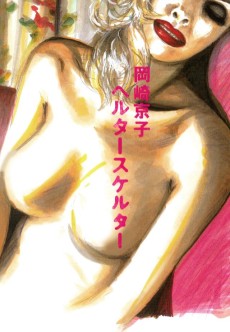 MANGA DramaHelter Skelter
MANGA DramaHelter Skelter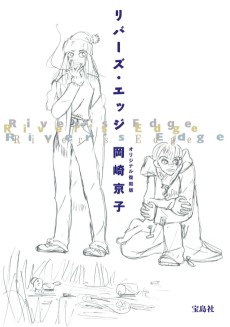 MANGA DramaRiver's Edge
MANGA DramaRiver's Edge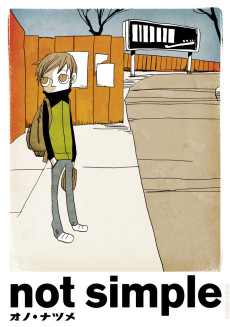 MANGA Dramanot simple
MANGA Dramanot simple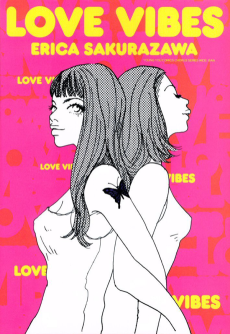 MANGA RomanceLOVE VIBES
MANGA RomanceLOVE VIBES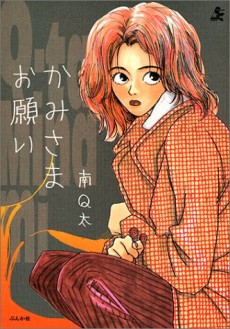 MANGA ComedyKami-sama Onegai
MANGA ComedyKami-sama Onegai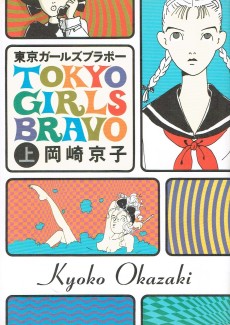 MANGA ComedyTokyo Girls Bravo
MANGA ComedyTokyo Girls Bravo MANGA DramaAi no Seikatsu
MANGA DramaAi no Seikatsu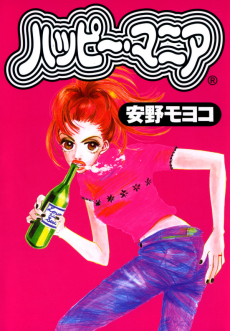 MANGA ComedyHappy Mania
MANGA ComedyHappy Mania
SCORE
- (3.8/5)
MORE INFO
Ended inSeptember 28, 1989
Favorited by 292 Users

